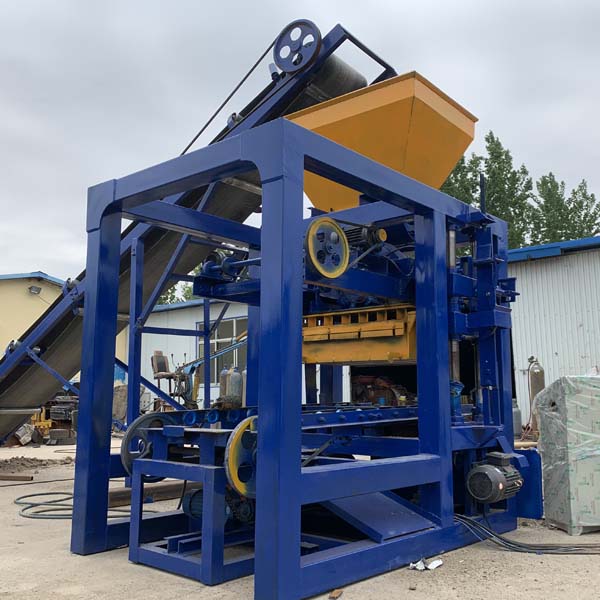
In the dynamic landscape of manufacturing, the integration of cutting-edge technologies has always played a pivotal role in enhancing productivity and efficiency.
One such technology that has been revolutionizing the industry is BlockMachine.
This essay delves into the transformative impact of BlockMachine in manufacturing, exploring how it harnesses the power of robotics to elevate productivity, the role of artificial intelligence in optimizing operations, the advantages it offers to diverse industries, and the potential challenges and considerations in adopting this innovative automation system.
The Power of Robotics in BlockMachine
BlockMachine is a testament to the remarkable advancements in robotics and automation.
At its core, it is a network of intelligent robotic modules that work in harmony to streamline manufacturing processes.
Each robotic module is equipped with specialized tools and sensors, designed to perform specific tasks with precision and consistency.
The power of robotics in BlockMachine lies in its ability to take on repetitive, labor-intensive, and hazardous tasks that were traditionally performed by human workers.
By leveraging robotics, manufacturers can achieve continuous operation, reduced cycle times, and improved production rates.
Furthermore, robots offer unparalleled precision, making them ideal for industries that demand tight tolerances and high-quality products.
Robotic automation also contributes to a safer work environment. By assuming dangerous tasks, robots reduce the risk of workplace accidents and injuries, promoting the well-being of human workers.
Leveraging Artificial Intelligence for Optimization
The integration of artificial intelligence (AI) is a defining feature of BlockMachine, propelling it beyond conventional robotics.
AI-driven controllers enable real-time data analysis and decision-making, optimizing the performance of the robotic modules and the overall production process.
AI allows the robotic modules in BlockMachine to communicate and collaborate seamlessly.
This intelligent coordination optimizes workflows, minimizes idle time, and ensures that each module performs its task efficiently.
The result is a synchronized and highly productive manufacturing line.
With AI, BlockMachine can predict and preempt equipment failures.
This proactive approach to maintenance reduces unplanned downtime and minimizes disruptions in production, leading to increased productivity and cost savings.
AI-driven controllers can continuously learn from production data, identifying patterns and trends that human operators might overlook.
This data-driven approach enables manufacturers to make informed decisions to improve efficiency and product quality.
Advantages for Diverse Industries
BlockMachine’s application extends across a wide range of industries, offering various advantages to each sector:
In the automotive industry, where precision and efficiency are paramount, BlockMachine streamlines assembly lines, enhances quality control, and increases production rates, leading to faster delivery of vehicles to the market.
BlockMachine’s precision and speed make it a perfect fit for electronics manufacturing, where delicate components require careful handling.
Its adaptability allows manufacturers to respond swiftly to rapidly changing technology and customer demands.
In pharmaceutical manufacturing, where sterile conditions and precise dosages are critical, BlockMachine ensures accurate production and packaging, reducing the risk of errors and contamination.
BlockMachine optimizes the production of consumer goods, such as appliances and electronics, by reducing costs, improving product quality, and meeting consumer demand more efficiently.
Challenges and Considerations
While BlockMachine presents numerous benefits, its adoption is not without challenges and considerations:
The implementation of BlockMachine requires a significant upfront investment, which may pose financial challenges, especially for smaller manufacturers.
Careful cost-benefit analysis is necessary to justify the expenditure.
As automation takes over certain tasks, there may be concerns about workforce displacement.
Manufacturers need to prioritize workforce development and retraining to ensure a smooth transition and to foster human-robot collaboration.
Integrating BlockMachine into existing manufacturing processes requires meticulous planning and customization.
Manufacturers must align BlockMachine with their unique production requirements, which might involve retrofitting or redesigning certain aspects of the production line.
As BlockMachine relies heavily on AI and IoT components, cybersecurity becomes a critical concern.
Safeguarding sensitive production data and protecting against potential cyber threats must be a priority.
BlockMachine’s integration of robotics and artificial intelligence ushers in a new era of manufacturing productivity.
By unleashing the power of robotics, BlockMachine optimizes production processes, enhances precision, and enables continuous operation.
The seamless coordination of robotic modules through AI-driven controllers improves efficiency and reduces downtime, making it a game-changer for various industries.
As manufacturers embrace the potential of BlockMachine, they must also navigate challenges such as workforce transition and data security.
With careful planning, BlockMachine has the potential to redefine manufacturing productivity, empowering industries to achieve new heights of efficiency and competitiveness in the global market.
